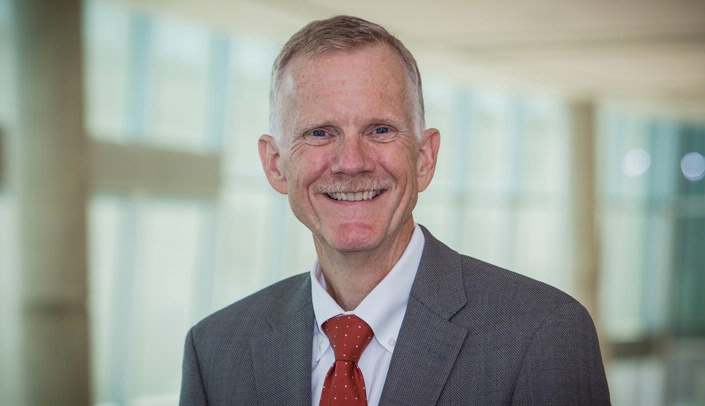Courtney Fletcher, PharmD, of the UNMC College of Pharmacy, will receive the Outstanding Mentor of Junior Faculty Award at the annual faculty meeting, which will be held virtually through Zoom at 3 p.m. on April 15.
- Name: Courtney Fletcher, PharmD
- Title: Professor and director, Antiviral Pharmacology Laboratory
- Joined UNMC: November 2007
- Hometown: Greybull, Wyoming
What are the greatest rewards of mentoring?
My greatest rewards are celebrating the successes of my mentees – a first-authored paper in a major scientific journal, a funded grant, their graduate student successfully defending his/her thesis, a presentation at a major scientific conference.
Describe a moment in your career when you realized you had picked the right occupation.
My moment was when I received my first NIH R01 grant, while on the faculty at the University of Minnesota. No faculty member in my department had ever received an R01, so I didn’t have a mentor in my department to learn from. I was fortunate, however, to have mentors in virology and clinical research in the medical school and in the basic pharmaceutical sciences. Receiving that first R01 signified to me that I had good ideas for clinically important work that were competitive for funding at the NIH. That first grant allowed me to see that I could have a career in academia and clinical research.
What are the biggest challenges you face as a mentor?
Maneesh Jain, PhD, used this Steven Spielberg quote last year when he received this award — and it can’t be improved upon: “The delicate balance of mentoring someone is not creating them in your own image, but giving them the opportunity to create themselves.”
The challenges then are helping your mentee find his/her own passion; pushing and prodding them to approach problems in different ways; allowing them to have some failures — and avoid saying “I told you so” when they do; and always making sure they can see the big picture.
How do you know when you’ve been successful as a mentor?
Ultimately, you know you have been successful when you see your mentees achieve success without you. As a mentor, you must understand the time will come when your mentee goes out on his/her own — they will write a paper without you, submit a grant without you, form a new collaboration without you. As a mentor you have to know, expect, encourage and accept this will happen. And you need to watch for these signs. It doesn’t mean your job as a mentor is done; indeed, you may never stop being a mentor. But it does mean your mentee is making the transition to an independent scientist — and that you have been instrumental and successful in making that happen.

Congrats, Courtney, on this tremendous honor. There’s nothing better than being a mentor – it makes the world a better place.